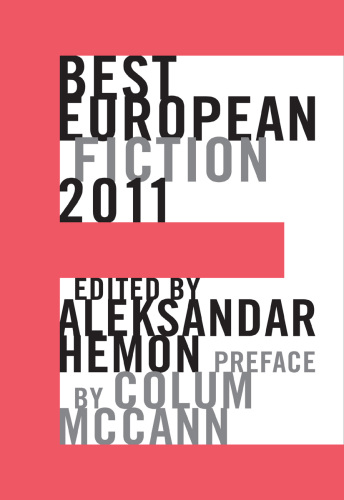
Best European Fiction 2011
Best European Fiction
- اطلاعات
- نقد و بررسی
- دیدگاه کاربران
نقد و بررسی

Starred review from September 6, 2010
With authors ranging from the familiar (Hilary Mantel) to the obscure (Macedonia's Blaze Minevski) to the internationally acclaimed but underappreciated in the U.S.A. (Spain's Enrique Vila-Matas; Hungary's László Krasznahorkai; Poland's Olga Tokarczuk), the second volume of this lauded series makes good on the first's promise. Zurab Lezhava's "Sex for Fridge" is the madcap story of a Georgian woman who tries to trade her body for a discount on a run-down refrigerator. Iulian Ciocan's "Auntie Frosea" takes as its depressing protagonist an impoverished Moldovan housewife whose only knowledge of the world outside her village comes from the beamed-in Brazilian soap opera she's addicted to. There's also plenty of Euro-surrealism: Olga Tokarczuk's haunting "The Ugliest Woman in the World" tells the story of a man who marries and has kids with a rather unbecoming woman, while László Krasznahorkai's "The Bill" is a nine-page, one-sentence meditation on the zone between male desire and possession. With stories from Montenegro, Cyprus, and even tiny Liechtenstein aside works from Turkey, Estonia, and most of Western Europe, this edition packs both a stylistic punch and a satisfying range.

November 15, 2010
In only its second year, this series has become one of the most vital literary anthologies around. A whole new group of authors, introduced by editor Hemon and Irish novelist Colum McCann, is on hand to "draw the border line, then step beyond it." This year's installment increases the number of countries represented from 30 to 37 (Belarus, Cyprus, Germany, and Montenegro are among the new additions) and arranges the stories in reverse alphabetical order by country. The anthology remains best suited for browsing and cherry-picking a story or two at a time, however, so the order is inconsequential. Highlights for 2011 include a darkly comic clash of cultures by Lucian Dan Teodorovici of Romania, the musings of a Soviet female clown by Anita Konkka of Finland, a literary mystery set in an army barracks by Drago Jančar of Slovenia, and explorative feminist fiction by Verena Stefan of Switzerland. VERDICT The quality of the stories is again uniformly excellent, so readers should not be deterred by the lack of household names. A powerful story by England's Hilary Mantel (Wolf Hall) is the primary exception and provides a good entry point. Greece and Sweden remain absent, the latter a missed opportunity to introduce American readers to an alternative to Stieg Larsson. Maybe next year.--Forest Turner, Suffolk Cty. House of Correction Lib., Boston
Copyright 2010 Library Journal, LLC Used with permission.




دیدگاه کاربران